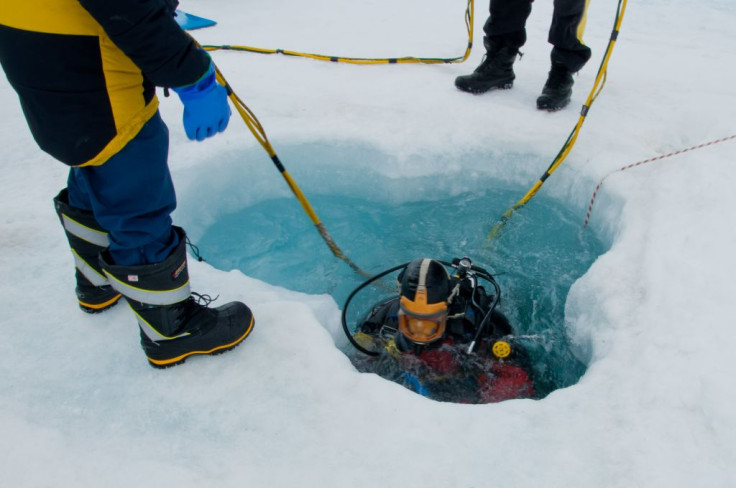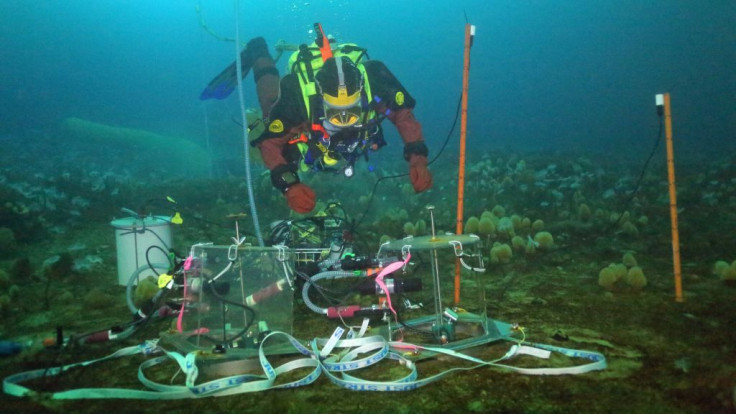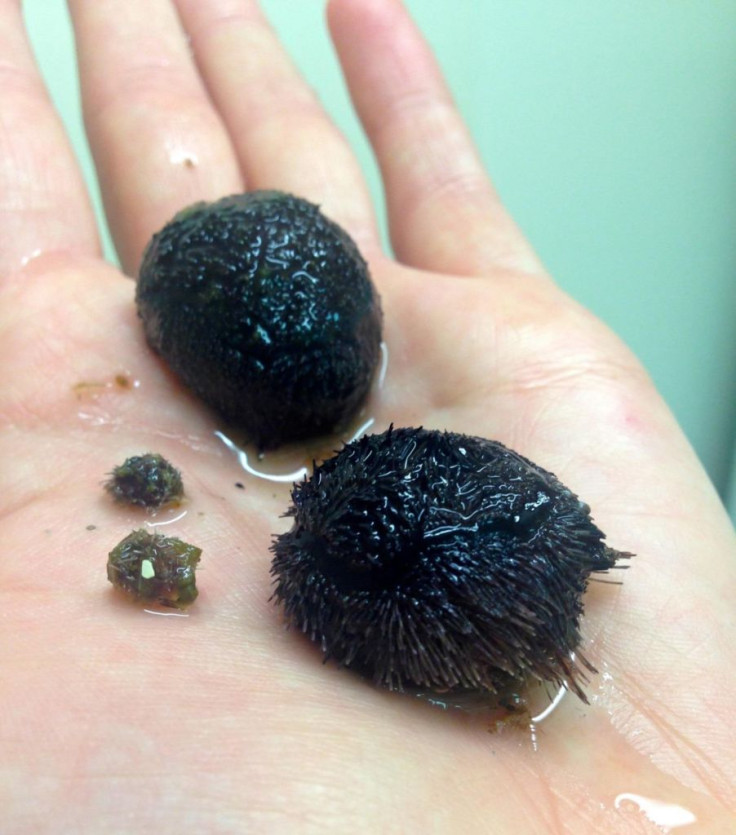Antarctic seafloor ocean acidification measured for first time by Australian divers [Photos]
Scientists have dived under the Antarctic ice to complete the world's first seafloor ocean acidification experiment in Antarctica – and findings show life in the deep appears to have changed in response to the acidic water.
The team from the Australian Antarctic Division Project were looking to study the impact of ocean acidification on marine and seafloor communities.
To do this, they completed over 200 dives, spending in excess of 200 hours in the freezing water – which was about minus two degrees.

Jonny Stark, the leader of the project, said: "The human body can only take those sort of temperatures for about an hour, so we had to continually rotate divers, and ensure they could be warmed up quickly once out of the water."
At present, the Southern Ocean absorbs 40% of the global ocean CO2 uptake and polar waters are acidifying far faster than tropical waters – a rate dubbed "unprecedented" by Stark.
The authors wanted to mimic future ocean conditions – current models suggest they will be 2.5 times more acidic by the end of the century. To create these conditions, they drilled holes through the sea ice and deployed four acrylic chambers onto the seafloor.

Two of the chambers were then pumped with CO2-enriched seawater through a series of ducts. Normal seawater was pumped into the other two so the conditions could be compared.
"The four chambers were fitted with underwater flow meters, thrusters, pH and temperature sensors and time-lapse cameras to record all the changes in the carbon dioxide-enriched environment, including the growth and behaviour of seafloor invertebrates and marine-plants," Stark said.

In total, they took over 1,200 samples of the various components of the ecosystems and although they have no conclusive results yet, "initial indications are that the photosynthesis of some of the tiny marine plants changed in response to the more acidic seawater and they may have migrated deeper into the sediment".
The team does not expect to release their findings for several months, but they say the study will be crucial in examining the scale of the changes seen in the Southern Ocean: "It's critical that we are able to get a clearer picture of how ocean acidification will impact the marine ecosystems into the future," Stark said.
© Copyright IBTimes 2025. All rights reserved.






















